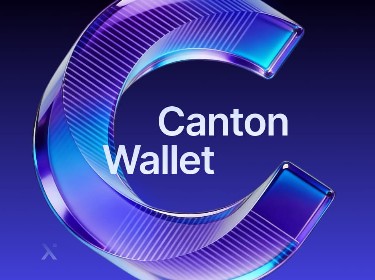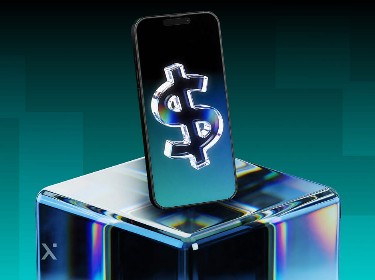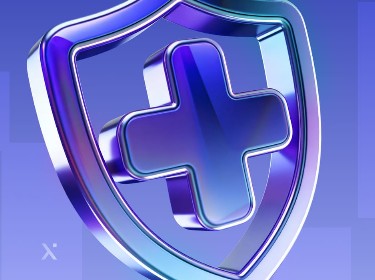From a buzzword to a transformative technology, blockchain has proven to be a real game changer for many businesses. If you have been wondering which blockchain use cases are worth exploring in 2026 and beyond, we are glad to share the latest insights.
Blockchain continues to gain traction across various sectors and domains, with companies worldwide using the technology to enhance multiple aspects of their workflows such as establishing better visibility and transparency of operations as well as enjoying improved security and trust.
Meanwhile, the blockchain market is catching up, too, and is expected to surge from $20.1 billion in 2024 to $248.9 billion by 2029.
While you may already be familiar with some blockchain use cases, we want to highlight the ten most successful and impactful applications of the technology in 2026. We will explore how blockchain has advanced various sectors and improved their processes and share how our blockchain development and consulting team has assisted clients in successfully integrating this technology to achieve their goals.
Top 10 blockchain use cases across industries to look out for in 2026 and beyond
![]()
Let’s check out how blockchain is being used in businesses from different sectors and how it has helped them achieve greater efficiency, reliability, and innovation in their workflows.
1. Blockchain in government
As blockchain statistics say, the market for blockchain in government services is experiencing rapid growth and is projected to hit $218.6 billion by 2032 — and it is not surprising at all since blockchain government use cases are abundant.
Blockchain can enhance governmental processes through its core attributes of transparency and security. It creates an immutable record of transactions, which reduces fraud and corruption by allowing verification without intermediaries.
Data security, which is a vital aspect of numerous governmental processes, is seeing considerable improvements, too. Unlike centralized databases, which are vulnerable to cyber attacks, blockchain distributes information across a network of nodes and makes unauthorized access and breaches more difficult, thus protecting sensitive data.
Moreover, efficiency in government operations benefits from blockchain as well. Blockchain-enabled smart contracts can automate various processes and automatically enforce the terms of certain agreements. As a result, there is no need for manual intervention, which cuts administrative costs and leads to accurate policy implementation.
With the help of blockchain, governments can also track funds and resources in real time and establish a clear and up-to-date financial overview, which is a valuable aspect in public procurement and welfare distribution.
And importantly — blockchain technology can also contribute to a fairer voting process. It secures voter registration, identity verification, and vote tallying, thereby reducing electoral fraud and boosting public trust in the democratic process.
Blockchain in Government: Use Cases, Challenges, and Real-Life Projects
See how our expert smart contract development services can ramp up your business’s efficiency
2. Blockchain in healthcare
To date, the healthcare industry has been highly receptive to innovations, which is why there are numerous use cases of blockchain in healthcare, and even blockchain in climate change.
Blockchain enhances patient consent management by enabling patients to grant or revoke access to their medical records and provides them with more control over their personal health data. The technology also allows for more streamlined clinical trials as it establishes the integrity, immutability, and transparency of trial data and prevents it from manipulation and fraud, which promotes trust among participants and regulatory bodies.
So, given blockchain’s capacity for securing data, we applied this technology in developing Patientory, a blockchain-based mobile application for health data management. We integrated the client’s private blockchain to enable seamless health information exchange and deliver a secure data storage system that meets HIPAA regulations.
In other blockchain healthcare use cases, such as pharmaceutical supply chains, the technology tracks each step of a drug’s journey from manufacturer to patient. This prevents counterfeit medications from entering the market, ensures the authenticity of drugs, and enhances patient safety.
In addition to this, blockchain can bolster the credentialing of healthcare professionals. It provides a secure and verifiable record of qualifications and certifications, thus helping reduce the time and cost associated with the credentialing process.
Exploring 6 Blockchain Use Cases in Healthcare: A Detailed Overview with Examples
How Can Generative AI Transform the Healthcare Sector?
3. Blockchain in banking and FinTech
One of the industries that has benefited most from distributed ledger technology is banking and FinTech — and so far, we have seen a multitude of groundbreaking crypto payment solutions and blockchain use cases in banking.
For instance, blockchain-enabled cross-border payments have become more efficient as the technology’s transparent ledger reduces the need for intermediaries, lowers transaction costs, enables real-time transaction verification, and fosters greater trust between parties.
Other blockchain financial use cases include lending and decentralized finance.
In lending, blockchain facilitates the use of smart contracts to automate and expedite loan processing and to minimize delays and administrative burdens. Another important area is leveraging blockchain in identity management, where improved identity verification mechanisms further enhance security and reduce the likelihood of fraud during customer onboarding.
Importantly, the rise of decentralized finance (or DeFi for short) expands banking capabilities by enabling direct peer-to-peer transactions and introducing specialized decentralized applications, such as Alfprotocol, for liquidity provision and yield farming. Through these innovations, blockchain empowers individuals across the globe to gain greater financial autonomy and participate more fully in the global economy. If you’re building for open markets, a public blockchain development company can help you select the right chain architecture and security approach for DeFi solutions.
4. Blockchain and IoT
As surprising as it sounds, distributed ledger technology can enhance the capabilities of another tech — the Internet of Things (IoT).
IoT devices generate a massive amount of data that needs to be securely stored and managed, and blockchain provides a tamper-proof ledger to record and authenticate IoT data, thus adding an extra layer of security and trust.
As well as this, blockchain IoT use cases address security concerns. Instead of relying on centralized systems, blockchain’s distributed nature protects against data breaches, which enables IoT devices and metaverse blockchain-based solutions to manage permissions without a central authority.
5. Blockchain in analytics
The use cases of blockchain in data analytics introduce a fresh approach with its immutable ledger that records every data transaction. This vital capability allows data analysts to trace and confirm the source of information with unmatched precision, prevents unauthorized alterations, and keeps insights authentic.
In addition to this, blockchain creates opportunities for dynamic data sharing. Different organizations can contribute to and access a unified data set without sacrificing control or privacy. Besides, smart contract development can automate data handling tasks, thus helping cut down on manual errors and speed up processes.
15 Best Big Data Analytics Tools and Platforms to Look out for in 2026
6. Blockchain in supply chain management
Apparently, blockchain use cases in supply chain management have been explored and analyzed many times but let’s review them once again.
One of the core applications of blockchain in supply chain development services is product tracking. Each step of a product’s journey — from manufacturing to distribution — is logged on a blockchain and provides a detailed record that verifies authenticity and tracks progress.
Smart contracts, for their part, automate key processes such as inventory management and order fulfillment and execute actions based on predefined rules, which substantially reduces delays and minimizes errors in transactions.
Moreover, blockchain enhances collaboration among supply chain partners. A shared ledger allows suppliers, manufacturers, and retailers to access consistent and accurate information, paves the way for better communication, and reduces disputes and misunderstandings among all parties involved.
Discover how our blockchain consulting team helped the client refine their vision for a shipper-to-carrier direct freight network
Are Corporate Crypto Stashes The Future? A No-Nonsense Guide to DATs
7. Blockchain in energy
Blockchain energy use cases stand to upend the sector through innovative approaches to energy trading and resource management.
In energy trading, blockchain facilitates peer-to-peer exchanges where producers and consumers transact directly. The method cuts out middlemen, helps lower costs, and boosts the use of renewable energy sources.
Energy grid management benefits from blockchain’s ability to record real-time data on energy production and consumption as the decentralized ledger helps utilities better manage distribution and balance supply with demand.
Plus, blockchain enables the creation of decentralized energy networks, which helps communities oversee their energy resources independently as well as improve local energy resilience and reduce dependence on central utilities.
8. Blockchain in insurance
Blockchain introduces a new paradigm in insurance claims management and provides an unalterable record of transactions that enhances transparency. With its decentralized structure, it mitigates the risk of fraud and reduces administrative delays. Claims are processed more efficiently through automated smart contracts that validate and settle claims with precision.
Among other blockchain insurance use cases, it is worth mentioning that the technology supports the creation of decentralized insurance networks that allow for peer-to-peer insurance models where individuals can pool resources and share risks without traditional intermediaries, expanding access to insurance.
Discover how PixelPlex delivered StreamSettle — a web platform for secure and efficient claims settlement
9. Blockchain in real estate
In real estate, blockchain-enabled direct transactions minimize reliance on intermediaries like brokers and notaries, expedite sales, and reduce associated costs.
Other notable blockchain real estate use cases include property management and fractional ownership.
For property management, blockchain provides a reliable system to track rental agreements and maintenance records. Such a high level of transparency benefits both tenants and landlords and helps maintain a clear and accessible history of property conditions and agreements.
What’s more, real estate tokenization has proven to be another successful blockchain use case. The reason it has been gaining momentum is that it simplifies property transactions, increases liquidity, and makes real estate investments more accessible to a broader audience.
For instance, PixelPlex recently advised a client on developing a real estate STO platform that facilitates fractional ownership of housing markets for those who cannot yet afford to buy a home.
10. Blockchain in education
Blockchain offers transformative benefits in education with several core use cases.
Immutable academic records are one of its key applications. Each student’s achievements, certifications, and transcripts are securely recorded on a blockchain, which prevents tampering and simplifies verification for admissions or employment.
Another significant use case is credentialing. Blockchain facilitates the issuance of digital diplomas and certificates that can be verified easily by employers and educational institutions, reducing the need for paper documents and minimizing fraud.
In addition to this, blockchain in art also supports secure and transparent management of intellectual property. Educators and researchers can register their work on a blockchain and establish proper attribution and protection of their creations.
Blockchain can also underpin sustainability solutions. Discover how we created a groundbreaking blockchain-powered recycle-to-earn ecosystem
Why do businesses embrace blockchain? An overview of the technology’s key benefits
![]()
Blockchain technology offers numerous advantages that make it a valuable asset for businesses across various sectors.
Let’s explore these key benefits to understand why integrating blockchain could be a smart choice for your company, too.
Greater transaction transparency and immutability
Blockchain’s standout feature is its capacity to create a clear and unchangeable record of transactions.
Every entry on a decentralized ledger provides a shared and permanent record that everyone can trust. This enhances confidence among all stakeholders involved as each transaction is publicly verifiable and, chiefly, immune to alteration.
Higher level of data security
Blockchain significantly enhances data security through its use of cryptographic techniques that protect information from unauthorized access and fraud. This is particularly beneficial for industries that need to handle confidential or high-value information.
Streamlined efficiency
Traditional systems and approaches to transaction handling normally involve multiple intermediaries and complex verification procedures, which can slow down transactions and inflate costs.
With blockchain, many of these intermediaries can be eliminated. Plus, multiple business processes can be automated through smart contracts that automatically execute, control, or document actions based on predefined rules, reduce the need for manual intervention, and accelerate overall process efficiency.
Cost reduction
The efficiency gained from eliminating intermediaries and automating processes translates into lower operational costs. As a result, businesses can reduce expenses related to transaction fees, administrative overhead, and fraud prevention.
Increased workflow reliability
Blockchain boosts workflow reliability through its decentralized network of nodes, which minimizes the risk of single points of failure and enhances system robustness. As a result, businesses experience consistent and dependable operations, even if failures or attacks occur.
Blockchain as a Service (BaaS) or custom blockchain development? Check out our blog guide to make an informed choice
10 Best Programming Languages for Blockchain Development
Top 10 Blockchain Development Companies in 2026
Blockchain trends to anticipate in 2026 and beyond
Now that you are familiar with the top 10 blockchain use cases of 2026, it is time to explore some of the key trends that will shape the technology’s future evolution.
Advancements in blockchain infrastructure
Addressing limitations such as scalability and energy consumption will be one of the top priorities for blockchain developers worldwide.
Layer 2 solutions like rollups will facilitate transactions off the main chain, enhance overall processing capacity, and make blockchain technology more suitable for high-volume and complex applications.
Besides, the shift towards more eco-friendly consensus algorithms such as proof-of-stake will reduce energy consumption compared to traditional methods while also enhancing scalability and transaction throughput.
Enhanced interoperability
The development of standardized protocols and bridges will be essential for improving interoperability among various blockchain networks.
Achieving seamless communication between different systems will enable cross-chain transactions and data sharing and pave the way for more integrated blockchain ecosystems.
Regulatory developments
New blockchain regulations are expected to place a bigger focus on privacy, security, and financial stability.
Meanwhile, governments and regulatory bodies are anticipated to introduce more detailed and clearer guidelines that will provide clarity for businesses and help mitigate risks associated with blockchain adoption.
Sustainability and green blockchain initiatives
Green blockchain initiatives are driving the shift toward energy-efficient consensus mechanisms. Proof-of-stake and its variants are gaining traction as they offer significantly lower energy consumption compared to traditional proof-of-work models.
All of these advancements will help support global sustainability goals and attract businesses committed to environmental responsibility.
Take a look at how our blockchain development team helped the client engineer HELO — an eco-friendly blockchain platform powered by the Proof of Ethic consensus mechanism
Closing thoughts
As blockchain keeps on evolving, its applications will expand and continue providing significant opportunities for businesses to improve transparency, security, and efficiency. From boosting supply chain management to advancing financial services and supporting sustainable practices, the potential of blockchain is vast and transformative.
For businesses ready to capitalize on these advancements, our blockchain development company delivers cutting-edge and resilient blockchain solutions to propel your success
We can craft blockchain applications that will help solve your business’s unique challenges and unlock new opportunities. Whether you are venturing into innovative use cases or enhancing current systems, our expertise will allow you to harness the full power of blockchain.
Reach out to us now and let’s start building your bespoke blockchain solution today.




